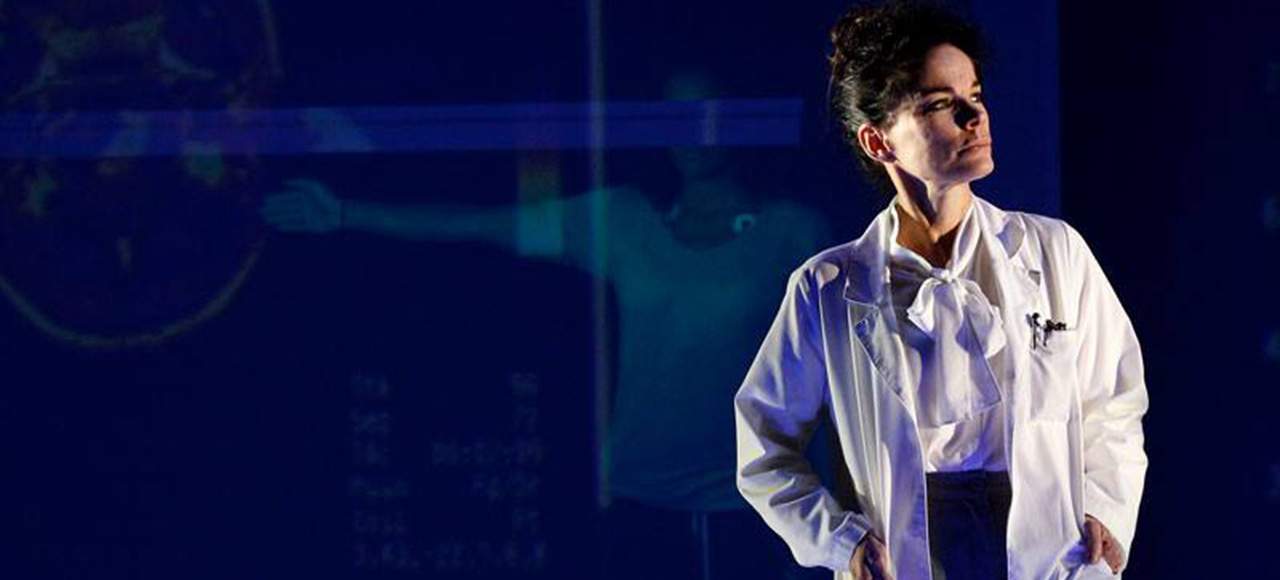The Effect – MTC
Love and science intertwine in this contemporary and affecting work from the UK's Lucy Prebble.
Overview
Lucy Prebble’s The Effect is a refreshing change of pace for MTC's 2014 season. Exploring the intersection between love and science, this acclaimed UK playwright takes on an issue that's both contemporary and enduring. Now, after separate productions in Sydney and Brisbane, the play finds a mostly satisfying form on the Melbourne stage.
Tristan and Connie (Nathaniel Dean and Zahra Newman) meet as young participants in a live-in medical trial where they’ll be taking increasing doses of a new antidepressant. They’re watched over by Sigrid Thornton’s Dr James, who in turn interacts with an even higher power: the TED-talking, psychopharmacology peddling Dr Toby (William McInnes). As Tristan and Connie form a romantic connection, they’re besieged by the thought that their newfound feelings could just be the result of the trial drug’s impact on the levels of dopamine in their systems.
Although the subtle twists in the plot — an unwinding reveal of which character knows or believes what at any moment — drive the play’s momentum, at over two hours, the show feels slightly long to be sustained by this kind of narrative dynamic alone. Indeed, it’s probably the play’s protracted final scenes after its climactic high point that might disengage an audience, though having this kind of slow-burn ending does make that high point all the more satisfying than if that had closed the work itself. Regardless, Prebble’s control over this plot and director Leticia Cáceres’ ability to highlight the characters’ uncertainty fills the play with a rippling tension of ambiguity.
At times some of the characters’ flaws are packaged a little too neatly for plausibility. For instance, when Tristan tells a surprised Connie that he believes in God the revelation comes across as an arbitrary contradiction in character imposed from above by Prebble, if only because this aspect of his character disappears from the play as quickly it was introduced.
The design elements — particularly Chris More’s projection and Pete Goodwin’s composition — are intertwined closely with the performance, to the point where effortless, icy stylishness threatens to overwhelm the very human elements at the heart of this love story. At the same time, strangely, this has the effect of emphasising the humanity of these characters’ emotions by contrast with their sterile, claustrophobic environment. There are occasional splashes of coordinated physical movement too that recall some of Caceres’ earlier work on plays like Hoods, with choreography contributed by Stephanie Lake. The almost abstracted quality of these moments reassert the real lives at the core of this science-heavy story.
Of course, any playwright willing to dramatise scientific issues like this leaves themselves vulnerable to criticism. Technical information is easily lost or muddied in the theatrical form. But in this case, it's heartening to see both the playwright and company tackling this kind of ideas-driven, contemporary work on the mainstage. When it does spark, The Effect is taut, gripping, and hugely affecting.
Image: Jeff Busby.





